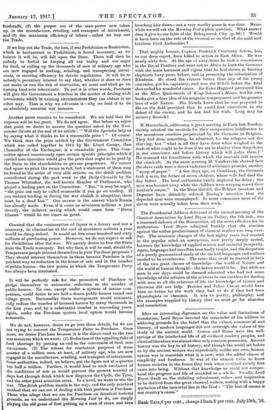Another point remains to be considered. We are told that
the expense will be too great. We do not agree. But before we argue that point we desire to answer the question asked by the if est- tat:4er Gazette at the end of its article : " Will the Spectator help us by saying what it thinks to be a reasonable price ? " Of course. 'We think that the price settled by the Government Committee which was called together in 1915 by Mr. Lloyd George, then Chancellor of the Exchequer, is a reasonable price. This Com- mittee agreed unanimously upon certain specific principles which if carried into operation would give the price that ought to be paid by the State to the shareholders or private proprietors. We cannot find space to print the terms in full, but a statement of them may be found in the series of very able articles on the drink problem contributed during the past week to the Daily Chronicle by Sir Thomas Whittaker, the well-known Member of Parliament, who played a leading part on the Committee. " But," it may be urged, " the price can only be called reasonable if you go on trading. If you restrict trading, or during the war abolish it altogether, there must be a dead loss." Our answer is the answer which Russia has already made. Even if it costs us seventeen millions a year directly, the indirect saving which would come from " Down Glasses" would be ten times as great.


























 Previous page
Previous page